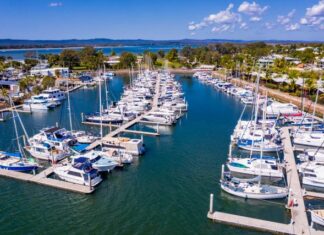Plumbing emergencies don’t wait for convenient times—they come during storms, holidays, late at night or when your schedule is already full. That’s why knowing what to do when a crisis hits, and having a reliable emergency plumber on speed-dial, can save you time, money and sleepless nights.
When you hear gushing water, see flooding, encounter major leaks or lose hot water unexpectedly, quick action is critical. Start by turning off the main water supply to your property. Most homes have a clearly labelled shut-off valve; if you can access it safely, shutting off the flow prevents further damage and gives you breathing room while you organise professional help.
Next, assess the location and severity of the issue. Is the leak under a sink, coming from the ceiling, or appearing behind walls? Are electrical appliances getting wet, or are there unexplained smells or noises from your water heater or pipes? Documenting the situation—via photos or notes—helps the plumber diagnose the issue faster and may support insurance claims later.
Once the immediate risk is contained, call your trusted emergency plumber. A qualified professional will prioritise your call, assess the situation remotely if needed, and dispatch a technician who is equipped to act fast. They’ll bring the right tools and materials, allowing them to address common problems on site rather than scheduling follow-up visits.
In the meantime, clear the area around the leak to prevent trip hazards or further damage, move valuable items or equipment away from water, and mop up small puddles. If you smell gas, hear hissing, or suspect a water heater has exploded, evacuate the area immediately and call the relevant emergency services—safety comes first.
When the plumber arrives, expect them to identify the cause, propose a plan, and provide a clear quote. Whether the issue is a burst pipe, overflowing toilet, blocked sewer or failing hot-water heater, prioritisation matters—some fixes can be temporary patches to provide safety, with full repairs done later. Ask about warranties for both labour and parts so you’re covered if any problem resurfaces.
After the emergency is resolved, follow up by reviewing your plumbing system’s overall health. Check pipes for corrosion, schedule a full inspection if you’re in a high-risk area (such as coastal or flood-prone regions) and consider upgrading older components. Preventative maintenance can minimise the chance of another late-night repair.
In short, plumbing emergencies are stressful but manageable if you act fast, stay safe and call the right professional immediately. With a reliable emergency plumber in Rockhampton on your side, you’ll turn a potential disaster into a speedily resolved incident—and get back to a dry, functioning home much sooner.







